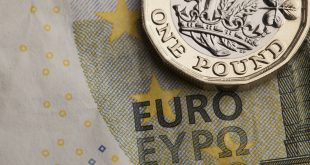As expected, the BoE raised interest rate by 50 bps to 3.50%. The BoE is seen as having provided no sufficient support for GBP to climb according to some economists.
As broadly expected, the BoE hiked 50 bps to 3.50% and signaled that more hikes are likely. The vote was biased to the downside, with the two most dovish MPC members calling for no hike while hawk Mann voted for 75 bps.
This is BoE’s ninth rate rise in a row as it tries to speed inflation’s return to target after price growth hit a 41-year high in October.
BoE Governor Andrew Bailey, in a letter to finance minister Jeremy Hunt accompanying the decision, said the BoE forecasts suggested British inflation had reached its peak.
Official figures on Wednesday showed consumer price inflation fell to 10.7% in November from 11.1% in October. That 0.4 percentage point fall in the annual rate was the largest since July 2021.
Budget decisions in Hunt’s November fiscal statement meant inflation in the second quarter of next year would be 0.75 percentage points lower than the BoE had forecast, but the longer-term impact would be minimal, the BoE said.
Unemployment is now creeping up, reaching 3.7% in the three months to October, but pay excluding bonuses still managed to rise at its fastest nominal rate since 2001, up 6.1% on a year earlier.
Last month the BoE said Britain was entering a long recession, and predicted the economy would shrink by 0.3% in the final quarter of this year.
The BoE’s Monetary Policy Committee voted 6-3 in favour of the hike, and said “further increases in Bank Rate” may be required to tackle what it fears may be persistent domestic inflation pressures from prices and wages.
“The labour market remains tight and there has been evidence of inflationary pressures in domestic prices and wages that could indicate greater persistence and thus justifies a further forceful monetary policy response,” the BoE said.
The BoE statement did not repeat unusual language from November when it said rates were unlikely to need to rise as far as markets expected. Market rate expectations have fallen since then.
One policymaker, Catherine Mann, wanted a bigger rate rise this month on the scale of November’s 0.75 percentage point increase – the BoE’s largest in more than 30 years – to tackle what she viewed as increased inflation risks since November.
The BoE move follows the US Fed’s decision on Wednesday to raise its main rate by half a point, as Western central banks grapple with post-COVID labour shortages and the impact of Russia’s invasion of Ukraine on energy prices.
Now it expects a fall of 0.1%, and for economic output in a year’s time to be 0.4% higher than previously thought as a result of budget measures that offered short-term stimulus.
 Noor Trends News, Technical Analysis, Educational Tools and Recommendations
Noor Trends News, Technical Analysis, Educational Tools and Recommendations





